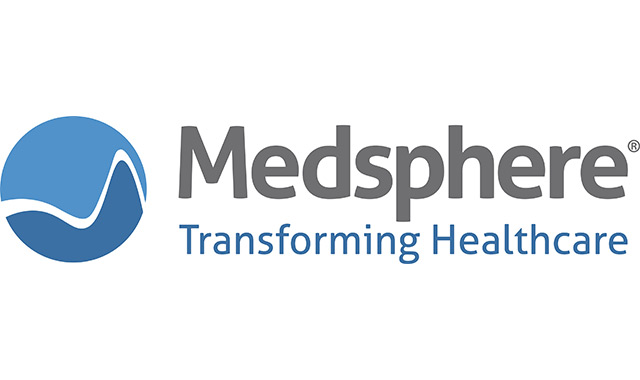Article by Irv Lichtenwald, president and CEO, Medsphere Systems Corporation, the solution provider for the OpenVista electronic health record.
None of us would have the jobs we currently occupy without some ability to focus on details. Running a company, developing IT systems, managing a hospital, seeing patients and evaluating their concerns—all require the ability to dig deep and identify root causes and effective solutions.
But maybe that focus on the trees blinds us to changes in the forest, to use a well-worn aphorism.
With that broader perspective in mind, I’d like to suggest four reasons for optimism as we continue to move through this wholesale experiment in tinkering with the health care system of a large and diverse nation.
Accountable Care is the way of the future.
The last week of August, CMS released numbers for the 333 Medicare shared savings program (MSSP) ACOs that both Healthcare IT News and Health Data Management characterized as disappointing.
Looking at the numbers, I understand why. In 2014, a modest 92 of 333 reduced spending enough to qualify for financial incentives; in total, those 92 reduced spending by $806 million and earned $341 million in reimbursement. (An additional 89 were able to cut costs, but not enough to qualify for payout.) The modest numbers give rise to concern because Track 2 of the program would create a scenario where ACOs might have to reimburse CMS if they cannot cut costs further.
So, why am I optimistic about ACOs when most have been unable to significantly reduce costs? Because the program is trending significantly in the right direction. Examples:
- No MSSP ACO in Track 2 of the program had to pay CMS in 2014.
- The savings numbers for last year (recall that 92 ACOs reduced spending by $806 million) are notably better than in 2013, when 538 ACOs created $315 million in shared savings.
- Of the ACOs that have been in the program since 2012, 37 percent generated shared savings compared with 27 percent for those that entered in 2013 and 19 percent in 2014.
- The ACOs that reported in both 2013 and 2014 improved in 27 of 33 measures of quality care.
The ACOs that have been doing it for longer are getting better at improving care and cutting costs. The odds of a replicable care model coming from the collective experience of these organizations seems pretty good. And if the fact many have not met CMS standards seems discouraging, keep in mind that CMS has the flexibility to adjust timeframes and measurements moving forward to recognize where the model is working and how it offers promise.
HIE participation is increasing.
According to the ONC, 96.9 percent of hospitals reported using a certified EHR system in 2014. We are almost at EHR saturation among hospitals, meaning the infrastructure is in place for wholesale data exchange. Evidence of this is the fact 76 percent—a number that has been rising since 2010—reported record exchange with external ambulatory care providers and other hospitals.
What remains are the technical, operational and financial issues that keep full interoperability from occurring. These technical issues can be eliminated with time and energy. The operational issues will probably have to be overcome with ingenuity, cajoling, negotiation and hopefully only a small amount of manipulation and public shaming.
Much has been made of the obstacles to interoperability, but I’m no longer of the opinion these are insurmountable so long as we operate with close to complete information, the key to an open and balanced marketplace. Information proliferation and the attending response caused one large EHR vendor to dramatically reduce file transfer fees. It has caused one former hospital CEO to allege antitrust violations by the same EHR vendor and a major client.
Sunshine is the best disinfectant. Vigilance is still necessary, but I think faith is warranted.
Open-ended premium pricing for EHRs is coming to an end.
According to recent analysis by IDC Health Insights, the Department of Defense’s selection of Leidos and Cerner will have “significant” impact on the EHR marketplace.
“IDC Health Insights expects that the impact of this award will be significant because it will end a period of open-ended and premium pricing for EHR that to date has been largely driven by government incentives but which in the future will be driven by calculations of business value and return on investment (ROI).”
While pricing analyses vary, IDC Health Insights believes the overall Leidos / Cerner bid was considerably less (this says nothing about what it ultimately will be) than that of IBM / Epic, making untenable the argument that taxpayers could recoup the investment in a higher priced EHR platform. Additionally, the IDC report says “Cerner will gain competitive traction at Epic’s expense,” and the DoD selection demonstrates a focus on interoperability and open architecture.
Of course, IDC is only one firm. What might bring more pressure to bear on EHR pricing is providers and hospitals taking on more direct financial risk for patient outcomes. When readmissions become more costly, one-off Epic and Cerner implementation projects really are unsustainable.
Behavioral health is finally a priority. Really.
We can’t really modify and improve the health care system in America if we continue to pretend like mental illness is not an essential component in that overhaul. Legislation making its way through both houses of Congress seeks to raise the visibility of mental health in the overall care system.
Representative Tim Murphy (R-PA) is back in the House with his Helping Families in Mental Health Crisis Act, reintroduced this past June. Joining him in the Senate is Chris Murphy (D-CT), who recently introduced the Mental Health Reform Act of 2015.
While neither bill has been approved, both legislators are already coordinating on what a final bill sent to the entire Congress for approval might look like.
If a final bill is endorsed by Congress, at least some credit will go to a heightened focus on mental health in the media. In recent months, the Washington Post reported that in 44 of 50 states and the District of Columbia, the largest corrections facility (prison or jail) holds more mentally ill persons than the state’s largest psychiatric facility. Early this summer, The Atlantic published a lengthy expose of Cook County Jail as America’s largest mental health facility.
Morally, America is failing the mentally ill. Importantly, from a utilitarian perspective, we’re paying a high financial price for doing so. Anecdotal factors seem to indicate a greater awareness of those concerns. Keep your fingers crossed.
To be sure, there are valid statistics and perspectives with regard to each of these four areas that suggest a less rosy outcome. You’ll have no problem finding physicians and hospital administrators who think Meaningful Use and other health system fixes are an unmitigated disaster.
And I will certainly admit that there is tremendous room for improvement, but I believe that improvement will happen. I believe we have the intelligence, fortitude and ethical grounding necessary to make necessary adjustments.
Change is happening. It will not soon, if ever, be halted. So, I ask you, is there not some aspect of health care overhaul you can get behind and constructively support?








































